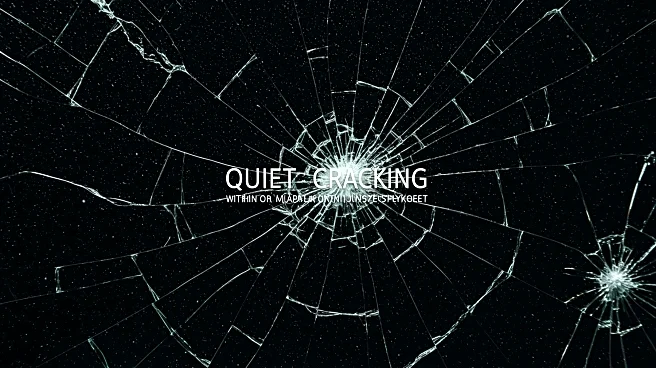What's Happening?
A new workplace phenomenon known as 'quiet cracking' is affecting employee mental health and productivity in U.S. offices. This issue arises as workers face stalled promotions and increased pressure due to AI integration, leading to a significant disengagement from their roles. According to a report from TalentLMS, 54% of employees experience unhappiness at work, contributing to a $438 billion global productivity loss. Unlike 'quiet quitting,' quiet cracking is unintentional and stems from feeling unappreciated and worn down. Managers are urged to develop engagement strategies to address this growing concern.
Why It's Important?
The rise of quiet cracking poses a substantial threat to business productivity and workplace culture. As employees become disengaged, companies face financial losses and a deteriorating work environment. This trend highlights the need for employers to prioritize employee engagement and mental health support. By addressing these issues, businesses can improve morale, reduce turnover, and enhance overall productivity. The phenomenon underscores the importance of proactive management strategies to foster a supportive and motivating workplace.
What's Next?
Employers are encouraged to implement strategies to combat quiet cracking, such as offering training and development opportunities to employees. Managers should engage in open conversations with staff to understand their concerns and provide support. By fostering a culture of growth and appreciation, companies can mitigate the effects of quiet cracking and improve employee satisfaction. Additionally, businesses may need to reassess their reliance on AI and ensure it complements rather than overwhelms their workforce.









